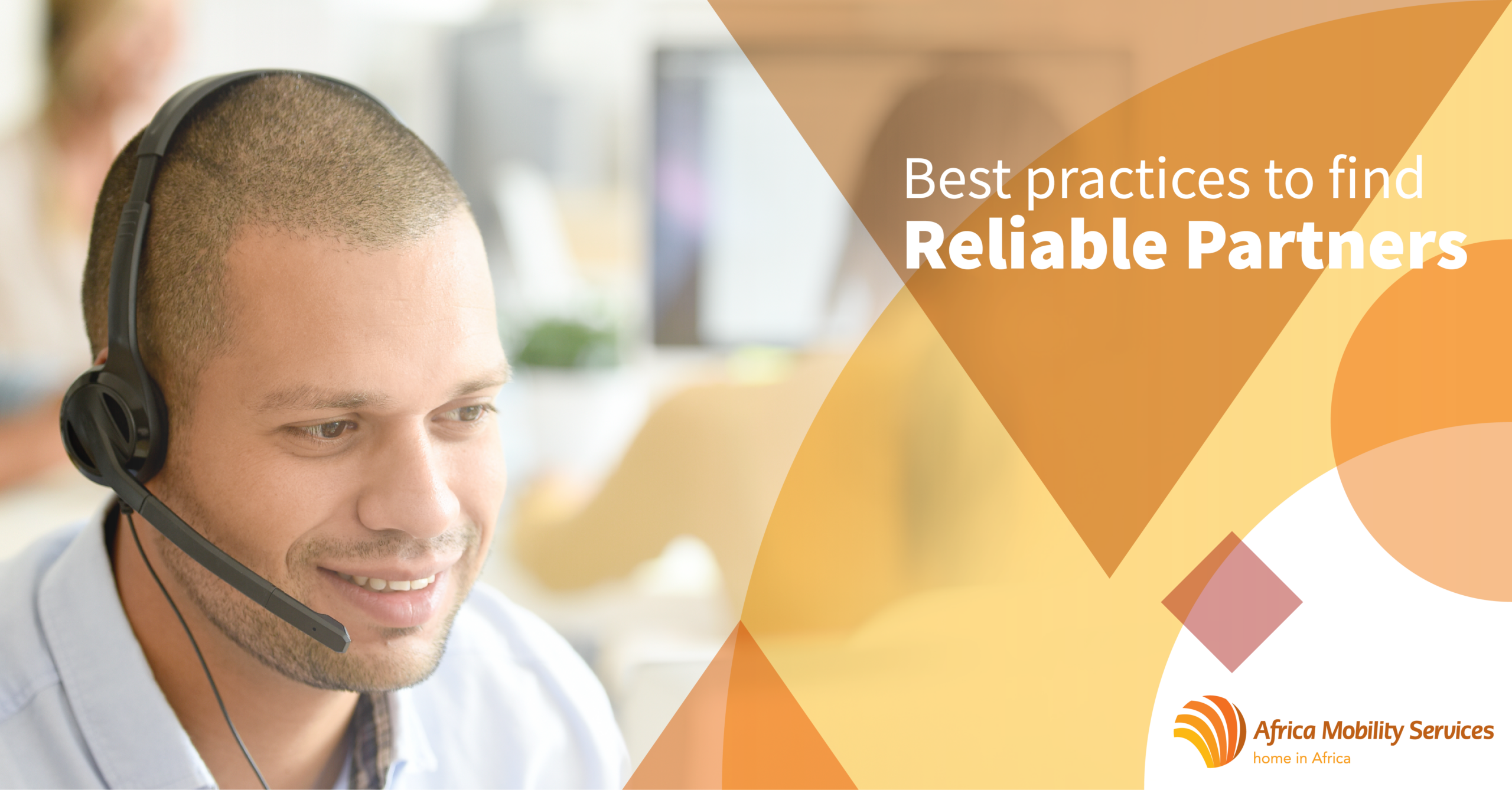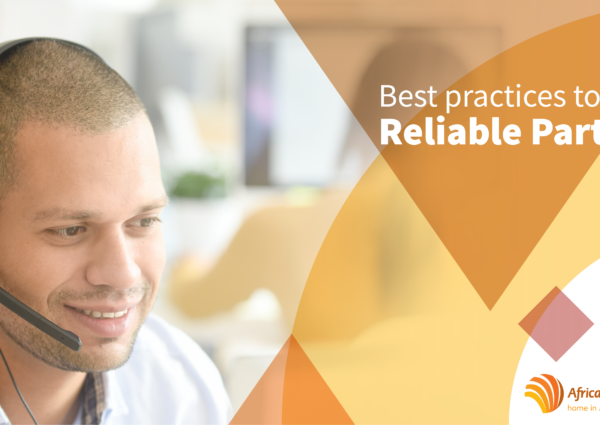News

Feb 26, 2024
Best practices to find reliable partners
By Charnel Francis, Chief Business Development Officer, Africa Mobility Services and Cosmas Kamuyu, CEO, Nellions Moving & Relocations
IAM Core Members Management Board (Region 1)
Selecting reliable partners to handle your customers’ household and personal effects is crucial for the success of your business. Here are some best practices to help you find and trust dependable partners:
Thoroughly research potential partners. Scrutinize their reputation by asking other partners, and customer feedback on consumer platforms. Authenticate their legal status, certifications, and adherence to industry standards.
Prioritize partners with a proven track record in handling used household and personal effects. Request references and check the references, and request case studies or success stories.
Check the IAM Mobility Exchange Directory (IAMX) to see whether your potential partner has committed to the FIDI Professional Cooperation Guidelines. These Guidelines serve as an operational manual and best practices document for how companies in the moving industry should work together to service international shipments, whether as a booker, origin, or destination agent. Also in IAMX, check that your potential partner has attained IAMX Validation, which is unique validation process, in which IAM member companies have voluntarily uploaded documentation or provided web links to verify their years of service, membership, compliance, and other qualification claims.
Finally, again in IAMX, check whether your potential partner is an IAMTrusted Moving Company (ITMC). This is a recognition program for IAM member companies that have invested in their staff’s competence, knowledge, and conscientiousness, and want to demonstrate their trustworthiness to their industry peers.
Assess the financial stability of potential partners. A financially secure partner is more likely to fulfill their commitments and invest in the necessary industry training and infrastructure. Check the IAM website for any reported issues via the Alleged Debtor List and Members Canceled for Nonpayment. Check via IAMX that your potential partner belongs to the IAM Receivable Protection Program (RPP). This program safeguards your company from financial loss.
Request the measures employed to secure the collection, processing, and storage of customers’ personal data, ensuring prevention of unauthorized access, use, disclosure, and alteration. Additionally, seek information on the steps taken to appropriately dispose of personal data when it is no longer required. Request any certifications completed by the potential partner (i.e. Thomson Reuters or LRN Certification courses).
Request your potential partner’s Bribery and Corruption Charter (ABC) that outlines the organization’s commitment to preventing bribery.
Ensure that your partners have the latest technology and a robust infrastructure to handle tracking of household and personal effects effectively, including asking about their anti-virus software. Look for potential partners who use integrated move management software programs (i.e., Reedge, RedSky, Moveware) for moving estimates, surveys, automated quotations, move management, digital inventories, warehousing and invoicing.
Confirm that potential partners comply with all relevant regulations and industry standards. Request from the potential partner for a copy of their Company registration and Public Liability Insurance, along with their D-U-N-S Number (Dun & Bradstreet), if they are registered. Dun & Bradstreet (D&B) is a global business analytics company that provides data and insights for businesses, including credit reporting and risk management services. Also, ensure they have a good understanding of customs and import/export regulations, including whether they outsource their customs clearance or handled inhouse.
Open communication is key. Choose partners who are transparent in their operations, can provide real-time updates on the status of goods, and establish clear communication channels and protocols to address any issues promptly. This includes escalation protocols.
Select partners who can scale their operations according to your business growth. Ensure they have the flexibility to adapt to changing circumstances and accommodate fluctuations in demand.
Verify that your partners have an adequate risk management plan to address unforeseen events.
Draft clear and comprehensive Service Level Agreements that outline expectations, responsibilities, and deliverables.
Schedule site visits to assess the physical facilities and operational processes of potential partners. Conduct regular audits to ensure ongoing compliance and quality assurance.
Implement a system for continuous monitoring and evaluation of your partners’ performance. Solicit feedback from customers and internal staff to identify areas for improvement.
By following these best practices, you can establish a reliable network of partners who will contribute to the smooth handling of your customers’ personal and used household goods and enhance the overall success of your business.
















